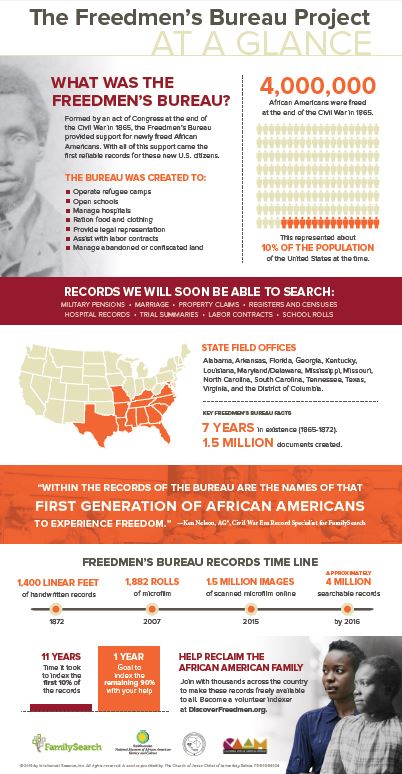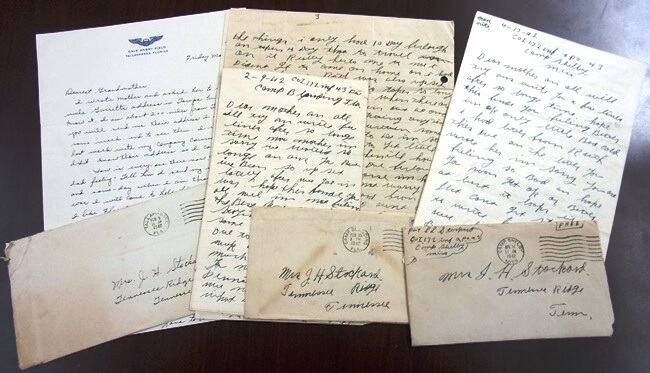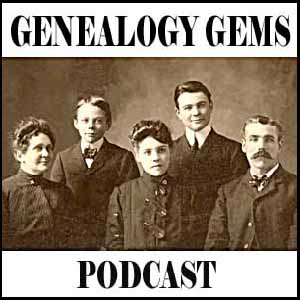by Lisa Cooke | Jun 14, 2015 | 01 What's New, Book Club, History, images, United States
 If you’ve read The Guernsey Literary and Potato Peel Pie Society
If you’ve read The Guernsey Literary and Potato Peel Pie Society , you know how brilliantly co-author Annie Barrows stitched together letters, conversations and history in her fictional love story and account of the Nazi-occupied island of Guernsey during World War II. I love that book. So I was super excited to hear her talking on The Diane Rehm Show recently about her new book, The Truth According to Us: A Novel
, you know how brilliantly co-author Annie Barrows stitched together letters, conversations and history in her fictional love story and account of the Nazi-occupied island of Guernsey during World War II. I love that book. So I was super excited to hear her talking on The Diane Rehm Show recently about her new book, The Truth According to Us: A Novel .
.
Of course, Annie read from the opening of her book, which made me put it at the top of my reading list. Then she talked about how history can be so different, depending on who is telling the story and from what perspective. I loved her take on small-town history and family history: how it’s remembered so deeply and passionately by its own, and often so mis-remembered or mis-represented by outsiders.
Here’s the book summary from Amazon:
“In the summer of 1938, Layla Beck’s father, a United States senator, cuts off her allowance and demands that she find employment on the Federal Writers’ Project, a New Deal jobs program. Within days, Layla finds herself far from her accustomed social whirl, assigned to cover the history of the remote mill town of Macedonia, West Virginia, and destined, in her opinion, to go completely mad with boredom. But once she secures a room in the home of the unconventional Romeyn family, she is drawn into their complex world and soon discovers that the truth of the town is entangled in the thorny past of the Romeyn dynasty.
At the Romeyn house, twelve-year-old Willa is desperate to learn everything in her quest to acquire her favorite virtues of ferocity and devotion—a search that leads her into a thicket of mysteries, including the questionable business that occupies her charismatic father and the reason her adored aunt Jottie remains unmarried. Layla’s arrival strikes a match to the family veneer, bringing to light buried secrets that will tell a new tale about the Romeyns. As Willa peels back the layers of her family’s past, and Layla delves deeper into town legend, everyone involved is transformed—and their personal histories completely rewritten.”
Annie did talk about the Guernsey book, too. I hadn’t realized her aunt wrote the original manuscript, then became too ill to do the rewrites her publisher wanted. So Annie took on the task. As the author of the acclaimed Ivy and Bean children’s series, clearly she was up to the task. But she didn’t dream it would become an international best-seller!
 That’s my latest recommendation as the “curator” of the Genealogy Gems Book Club. We recommend mainstream fiction and nonfiction titles that resonate with people who love family history. Up soon on the Genealogy Gems Book Club schedule: our interview with author Nathan Dylan Goodwin, author of The Lost Ancestor (The Forensic Genealogist)
That’s my latest recommendation as the “curator” of the Genealogy Gems Book Club. We recommend mainstream fiction and nonfiction titles that resonate with people who love family history. Up soon on the Genealogy Gems Book Club schedule: our interview with author Nathan Dylan Goodwin, author of The Lost Ancestor (The Forensic Genealogist) (we’ll put the link up on the Book Club page when it’s ready). We also recently published this new companion list of how-to genealogy books we love.
(we’ll put the link up on the Book Club page when it’s ready). We also recently published this new companion list of how-to genealogy books we love.
by Lisa Cooke | Jun 22, 2015 | 01 What's New, African-American, Brick Wall, FamilySearch, images, Records & databases, School Records, United States, Volunteer
 The more I learn about U.S. history and records, the more I appreciate the challenges faced by those researching their African-American roots. In addition to the emotional toll of learning about their ancestors’ hardships, today’s researchers face the practical challenges of finding kin in records that mostly ignored their existence.
The more I learn about U.S. history and records, the more I appreciate the challenges faced by those researching their African-American roots. In addition to the emotional toll of learning about their ancestors’ hardships, today’s researchers face the practical challenges of finding kin in records that mostly ignored their existence.
That’s why I’m super excited that the Freedmen’s Bureau records are finally being fully indexed. Scattered records are already transcribed (see the Freedmen’s Bureau Online). But there hasn’t been a comprehensive index of its 1.5 million state field agency documents. These include military pensions, marriage records, property claims, hospital records, trial summaries, labor contracts, school rolls, registers and censuses. Many of the four million African-Americans freed from slavery are mentioned, as are many white Southerners.
FamilySearch indexers began quietly indexing Freedmen’s Bureau records in 2009: the state of Virginia’s records are already searchable. Last week, in observance of the Juneteenth holiday (which celebrates emancipation), FamilySearch issued a call to action. They asked for help indexing the rest of the Freedmen’s Bureau within the year.
“Records, histories and stories will be available on DiscoverFreedmen.org,” says a release. “Additionally, the records will be showcased in the Smithsonian’s National Museum of African American History and Culture, which is currently under construction on the National Mall in Washington, D.C., and expected to open in late 2016.”
 Here’s a quick history lesson: The Freedmen’s Bureau was organized after the Civil War to aid newly-freed slaves in 15 states and Washington, DC. For several years it gathered “handwritten, personal information on freed men, women and children, including marriage and family information, military service, banking, school, hospital and property records,” according to FamilySearch.
Here’s a quick history lesson: The Freedmen’s Bureau was organized after the Civil War to aid newly-freed slaves in 15 states and Washington, DC. For several years it gathered “handwritten, personal information on freed men, women and children, including marriage and family information, military service, banking, school, hospital and property records,” according to FamilySearch.
The richest genealogical records of the Freedmen’s Bureau are in the field office records of each state. Click here to download a PDF from the National Archives about these original records.
Find more tips on finding African-American and other Southern U.S. ancestors here on the Genealogy Gems website. Recent posts include:
 Receive a heads-up about posts like these–and get a free e-book on Google searching for genealogy–when you subscribe to the free Genealogy Gems newsletter in the upper right corner of this webpage or our home page.
Receive a heads-up about posts like these–and get a free e-book on Google searching for genealogy–when you subscribe to the free Genealogy Gems newsletter in the upper right corner of this webpage or our home page.
by Lisa Cooke | Mar 12, 2015 | 01 What's New, Health History, Inspiration, Writing Family History
Did you know that writing–and then re-writing–our personal stories can be good for our health? And even better for our future,

Courtesy Houston County, TN. Archives.especially if we are struggling to define that future optimistically.
So says a recent New York Times blog post. “We all have a personal narrative that shapes our view of the world and ourselves,” writes Tara Parker-Pope.
“But sometimes our inner voice doesn’t get it completely right. Some researchers believe that by writing and then editing our own stories, we can change our perceptions of ourselves and identify obstacles that stand in the way of better health.”
She’s not talking about writing childhood memories or ancestral anecdotes. In several studies, people who were struggling in an area were asked to write about it. Then they were presented with optimistic scenarios about how others had overcome difficulties. Those who rewrote their narratives were able to grab onto some of that optimism. They actually changed the way they thought of their “problem,” whatever it was. And long-term results in some studies showed that these people DID in fact improve.
We often see celebrities on Who Do You Think You Are? talk about how their ancestors’ lives inspire them or teach them new ways of understanding their own lives. Many who write their own family histories say the same thing. As we wrestle with memories or facts and how to present them in writing, we also interpret the past in new ways and, often, this new insight brings hope for a better future.
 One more GREAT reason to write your life story and family history, don’t you think? Thanks to my brother Chris McClellan for sharing this blog post with me.
One more GREAT reason to write your life story and family history, don’t you think? Thanks to my brother Chris McClellan for sharing this blog post with me.
Listen as Lisa and I discuss different styles for writing about your family history in the FREE Genealogy Gems podcast episode 176. Or get inspired by the family history-themed books we love and share on our Genealogy Gems Book Club page. Click here for great suggestions on what to read!
by Lisa Cooke | Apr 13, 2019 | 01 What's New, Cloud Backup, Disaster Prevention, images, Organization
Every genealogist eventually finds themselves with more paper than they know what to do with. Records, photos, letters, and other ephemera inevitably begin to pile up in the pursuit of our ancestors. So how do you preserve it and protect it for future generations? One...
by Lisa Cooke | Jul 1, 2015 | 01 What's New, images, Records & databases, United States
 In honor of Independence Day in the United States, AmericanAncestors.org is offering free access to databases on early New England ancestors starting TODAY through July 8.
In honor of Independence Day in the United States, AmericanAncestors.org is offering free access to databases on early New England ancestors starting TODAY through July 8.
If you have Mayflower, Pilgrim or Puritan ancestors (or want to confirm the rumor that you do!), you’ll want to take advantage of this offer from the New England Historic Genealogical Society. For many years the society has been researching “the 20,000 men, women, and children who crossed the Atlantic between 1620 and 1640, seeking opportunity and relief in New England.”
The Great Migration Study Project, as their work is known, has resulted in several databases, nine of which are open to the public for FREE during the first week of July 2015:
The Great Migration Begins. This database “attempts to identify and describe all those Europeans who settled in New England prior to the end of 1633,” states an NEHGS press release. “As a rough estimate, about 15 percent of the immigrants to New England arrived in the fourteen years from 1620 to 1633, with the remaining 85 percent coming over in half as many years, from 1634 to 1640.”
The Great Migration Newsletter. “This database comprises Volumes 1 through 20 of the Great Migration Newsletter, published between 1990 and 2011. Each 32-page issue contains one or two feature articles, a column with editor’s comments, and a review of recent literature on the Great Migration. Each issue also contains a section with detailed coverage of one of the towns settled during the Great Migration, or of a specific critical record, or group of records.”
The Great Migration: Immigrants to New England, 1634-1635, Volumes I—VII, A-Y. (7 separate databases) “As many as 2,500 people immigrated in 1634 and again in 1635….In May 1634, the population of Massachusetts doubled in just one month….Each alphabetical entry for a family or individual includes:
- Place of origin, if known
- Date and ship on which they arrived in New England, if known
- Earliest known record of the individual or family
- First residence and subsequent residences, when known
- Return trips to their country of origin, whether temporary or permanent
- Bibliographical information such as birth, death, marriage(s), children, and other important family relationships, church memberships, and civil and military offices held.”
Click here to access these databases for free between July 1-8, 2015. (Registration at AmericanAncestors.org is required as a FREE Guest Member.)
 Looking for more FREE New England genealogy resources? Check out these blog posts!
Looking for more FREE New England genealogy resources? Check out these blog posts!
 If you’ve read The Guernsey Literary and Potato Peel Pie Society
If you’ve read The Guernsey Literary and Potato Peel Pie Society, you know how brilliantly co-author Annie Barrows stitched together letters, conversations and history in her fictional love story and account of the Nazi-occupied island of Guernsey during World War II. I love that book. So I was super excited to hear her talking on The Diane Rehm Show recently about her new book, The Truth According to Us: A Novel
.
 That’s my latest recommendation as the “curator” of the Genealogy Gems Book Club. We recommend mainstream fiction and nonfiction titles that resonate with people who love family history. Up soon on the Genealogy Gems Book Club schedule: our interview with author Nathan Dylan Goodwin, author of The Lost Ancestor (The Forensic Genealogist)
That’s my latest recommendation as the “curator” of the Genealogy Gems Book Club. We recommend mainstream fiction and nonfiction titles that resonate with people who love family history. Up soon on the Genealogy Gems Book Club schedule: our interview with author Nathan Dylan Goodwin, author of The Lost Ancestor (The Forensic Genealogist) (we’ll put the link up on the Book Club page when it’s ready). We also recently published this new companion list of how-to genealogy books we love.







